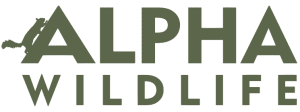6 Snakes You Might Encounter in South Carolina
Snakes found in South Carolina thrive in the state’s coastal plains, mountains, and rivers. You can find 38 snake species in South Carolina, including 6 venomous snakes. They are most active in warmer months from April through October.
The different types of snakes in South Carolina typically keep to themselves and are only aggressive toward people when aggravated. Still, snakes can become a nuisance when they live in your home or property. Snakes can adapt to suburban environments and climb into your basement or attic.
Let’s look at some of the most common snakes in South Carolina.
Black Racers
Black racers are large, slender snakes growing up to 60 inches long. These nonvenomous snakes have smooth, black scales, white under their chin, and a dark gray or black belly. They typically inhabit wetlands, fields, and forest edges. In suburban areas, they also like to make fallen boards or debris in their homes. Black racers are fast and great at climbing small trees to escape predators. They will bite if cornered or threatened.
Brown Snakes
Brown snakes are small, nonvenomous snakes ranging from 6-13 inches long. They can appear brown or yellowish, reddish, or grayish-brown. Other identifying marks include 2 rows of dark spots along their back, a dark streak on the side of the head, and a light brown or white belly. Brown snakes thrive in wet areas like swamp edges and wetlands. They are among the most common snakes in residential areas under debris and ground cover like leaves and logs.
Corn Snakes
Corn snakes are slender orange, reddish brown, brown, or gray snakes with brown or red squares (blotches) outlined in black. These snakes grow to fairly large sizes at 30-48 inches long. Corn snakes are nonvenomous but can be confused with the venomous copperhead. You’ll find corn snakes in upland, dry areas like sandy pine woods. They also inhabit suburban and agricultural areas in abandoned buildings, barns, and homes.
Eastern Garter Snakes
Eastern garter snakes usually have a dark body with yellow stripes down the body. These nonvenomous snakes can also have a checkered body pattern with light stripes and a dark gray or reddish body. These snakes typically range from 18-25 inches long but can reach up to 49 inches. Garter snakes usually inhabit moist, grassy areas near ponds, streams, lakes, and ditches. They also thrive in suburban areas under debris, boards, logs, rocks, or vegetation.
Rat Snakes
Rat snakes are nonvenomous snakes that are about 3-5 feet long. Black rat snakes have black scales with faint white or yellow areas between scales. They are more common in mountain areas. Yellow rat snakes are greenish, yellow, or orange with four black stripes. Gray rat snakes are light or dark gray with dark gray or brown blotches. You’ll typically find yellow rat snakes near coastal areas and gray rat snakes near rivers. When frightened, rat snakes get kinked up and expel a musky odor. It’s common to find rat snakes in suburban areas like abandoned buildings and barns. They are great at climbing brick walls and tree trunks.
Copperheads
Copperheads are the most common poisonous snakes in South Carolina and can reach up to 4 feet long. These venomous snakes have copper-colored heads, and their bodies can appear pink or copper/tan with hourglass-shaped dark brown blotches. Copper heads can live in coastal plains, swamps, pine forests, and mountain coves. They can also enter homes searching for rodents or small reptiles. Copperheads usually aren’t aggressive, but they camouflage themselves in leaves well. When threatened, copperheads shake their tail and will prepare to strike if further provoked.
Snake Removal In South Carolina
If you have snakes on your property, don’t try to catch them yourself. An experienced wildlife removal service like Alpha Wildlife can help you safely remove snakes.
Learn more about our professional snake removal services.
If you need help with snake removal, call the certified experts with Alpha Wildlife today!
